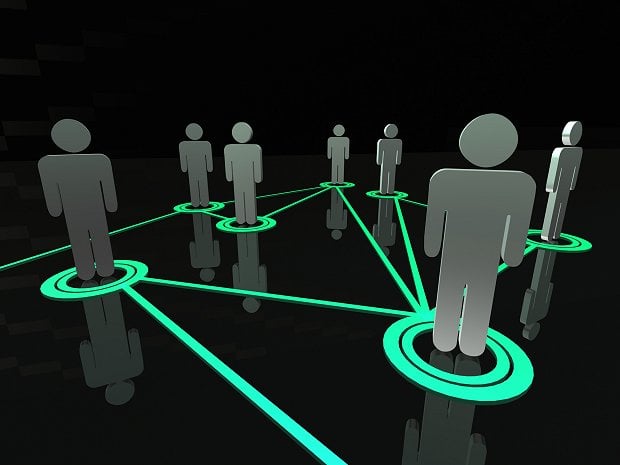 Image via tipsforclassicalmusicians.com
Image via tipsforclassicalmusicians.com
In any field, "who you know" often counts more than "what you know." This is especially true in the music industry – an ever-shrinking pool of people that exemplifies the proverbial "small world." Now, more than ever, it's important to not only build your list of contacts, but also make true connections with fellow folks in the biz.
A true connection vs. a contact
A contact is someone you know through someone else, or is a respected person in your field who could potentially benefit you in some way. But what really matters is how you turn that contact into a connection.
Just because you once got an email back from a publicist, or met someone at a networking event and exchanged business cards, does not mean that you've automatically made an industry connection. A connection is someone you've met in person, have known for some time, can relate to genuinely, and can trust. There's a sense of mutual interest, gain, or benefit to the relationship.
Creating connections boosts your career and opens up new opportunities. Connections can help you get more shows, build your fanbase, find the right producer for your album, find musicians with whom to collaborate, or even help you get writers to review your music.
"As with everything, it's self-serving, but it's also mutual," says Bridget Duggan, who books Johnny D's Uptown Restaurant and Music Club in Boston and is a member of Somerville, MA, band Paper Waves. "It helps out both sides to make connections, although it is not something that can be forced and does not happen overnight.”
6 Steps to Build and Maintain Industry Connections
1. Select properly
When meeting people, think about how they are relevant to what you do, and why the connection is important to you. Is there a band you admire and want to open for or tour with? Could you introduce yourself to the promoter of the venue you want to play? Treat everyone with respect, because you never know how powerful of a person you might be talking to.
2. Have intention
Don’t just hand out your business card to anyone passing by. Connections won’t take you seriously unless you have some genuine reason to reach out to them. Mention a personal interest in what they do, or have something meaningful to say.
3. Meet people in person
"When I started doing promotion...I emailed everyone I could possibly think of to introduce myself to them. It didn’t work," says Duggan. "It's more about being in the scene.... Meeting in person makes a big difference." When talking with potential connections, try to express why they inspire you, offer something back to them, and, in the appropriate situation, mention a mutual friend or a shared connection who also takes an interest in you. Establish a friendly relationship and connect with them genuinely.
4. Have something to offer
If you want to grab someone's attention, offer to add them to the guest list for an upcoming show, or co-bill with a band you want to connect with. There are so many ways to reciprocate.
5. Be mutually supportive
Support people doing their "thing," and in turn, they might support you. “Stick around after the show and introduce yourself," says Duggan. "Look people in the eye and ask them their names." Go see a band from out of town perform that pairs well with your sound, and offer them an opening slot at a well-drawing show in your area. In return, open for them where they draw a crowd. This way, you both gain exposure to new audiences. Start locally, then begin building relationships and connections regionally and nationally.
6. Use social media
Connect with people you meet in person via social media to show support for what they do – they might do the same for you. If you like something they post, comment on it or share it. In addition to privately thanking your connections when they help you out, you can also give them a public social media shout-out when appropriate.
The bottom line is that you never know who might be able to help you down the road. You might need something specific one day, and, because of your connections, you'll be able to reach out to the perfect person. If you are also recognized for what you have to offer and can help out someone else, it only boosts the relationship and connection.
Christiana Usenza is musician and dancer with a master's degree in ethnomusicology from Tufts University. She has ventured as far as Argentina, Brazil, and Ghana to study music and dance, and has an endless curiosity for music genres, styles, and scenes across the world. She teaches music, writes music, and works in the booking office at Johnny D's in Somerville, MA. She is a member of the band Paper Waves, and they are currently working on their first album.


